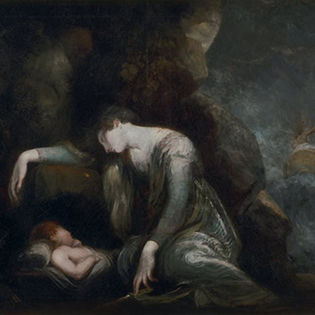BECC Spring Colloquium
- Location
- Arts 335 (Rodney Hilton Library)
- Dates
- Wednesday 6 March 2024 (13:00-15:00)
- Contact
The colloquium is free and open to all: if you'd like to attend, please email the BECC director, Dr Tom Cutterham.

In this two-hour session, we will host two speakers. Hannah Wilson was the holder of the BECC-BSECS Fellowship in 2023-24 and will present results from her research, while Imogen Knox is an advanced doctoral candidate at the University of Warwick taking part in our ongoing PhD exchange programme.
“Greater obligations than I had power to confer”: Eighteenth-Century Gift Exchanges in the Cadbury Research Library Hannah Wilson (Cambridge)
The history of consent has come to the fore in recent years, with the #MeToo movement making consent in sexual relationships a newly alive and scrutinised issue. My wider PhD research project contributes to the history of consent by exploring the complex relations between courtship gift exchange and coercion in eighteenth-century women’s writing. With reference to the Ambler and Anna Seward letters kept in Birmingham’s Cadbury Research Library, this talk investigates the mixture of obligation and gratitude that accompanied so many sociable gift exchanges. Examining the motivations of exchange provides new perspectives on the possibility of mental manipulations shaping relationships in eighteenth-century Britain.
Self-Destructive Desires and the Supernatural in Early Modern Britain Imogen Knox (Warwick)
Suicide was both a crime and a sin in early modern Britain. Following these prescriptions against the act, scholars have largely focused on the legal and religious condemnation of suicide. Less attention has been paid to the broader experience of suicidality and the ways in which early modern people dealt with suicidal thoughts in themselves and others. Through the source material offered by the supernatural, my work seeks to provide a way into these experiences. It emphasises the different picture we get of suicide when we take a wider view, particularly by privileging accounts in which people felt suicidal, but did not necessarily take their own lives. In my doctoral thesis, of which this paper provides an overview, I position ‘self-destruction’ and associated thoughts and behaviours not as a marginal experience of the mentally unstable, but as an anticipated, perhaps even ‘everyday’ part of life in early modern Britain.